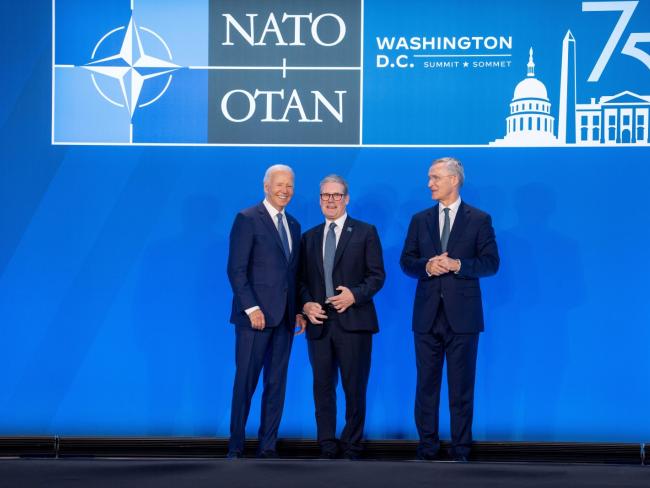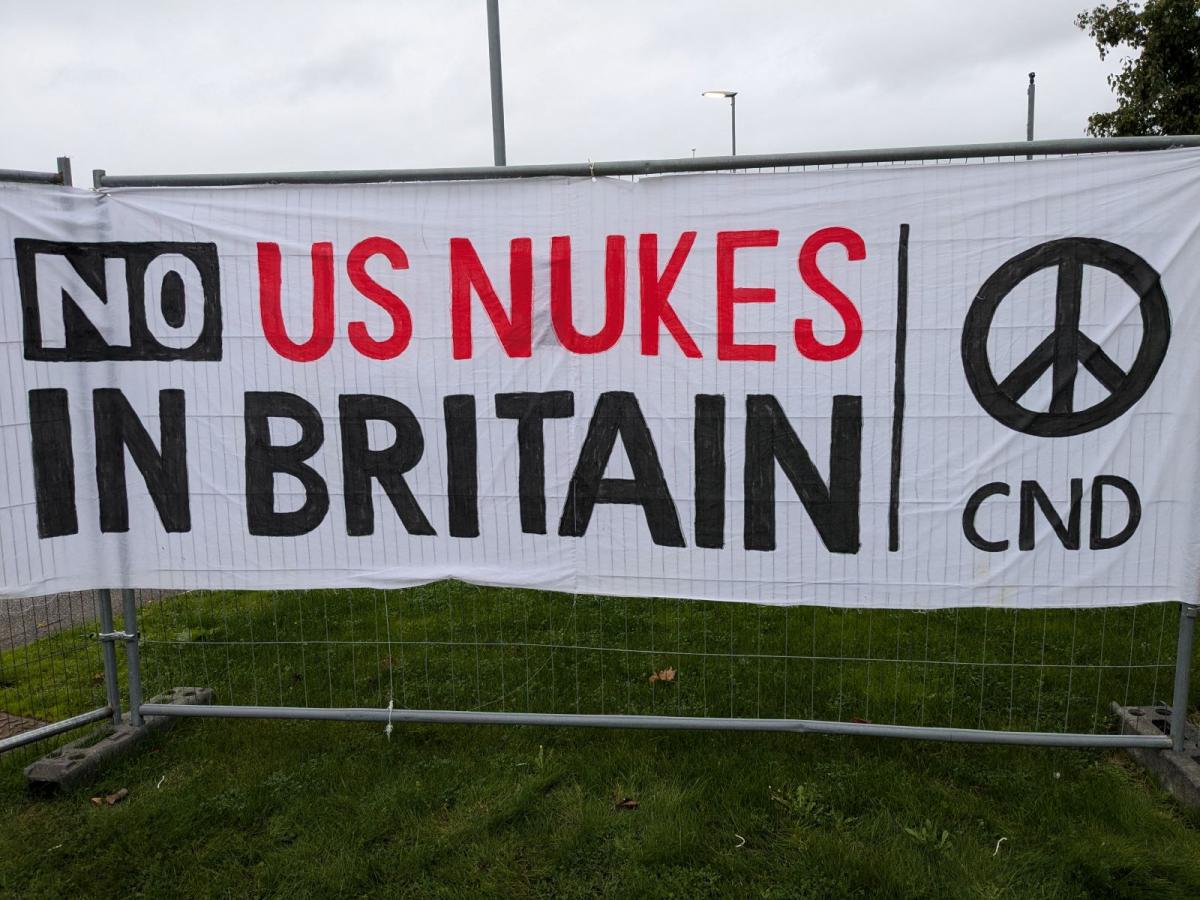4 June 2025

Talking war: Keir Starmer with NATO secretary general Jens Stoltenberg and US President Joe Biden at the NATO summit in Washington on 10 July 2024, a few days after he was elected. Photo Javad Parsa / NTB / Alamy Stock Photo.
It is less than a year since the Labour government came to office. Keir Starmer has spent much of his time as prime minister around the world talking war and preparing for war. It’s not in Britain’s interest.
Starmer went to BAE Systems in Glasgow on 2 June to announce the outcome of the strategic defence review, He presented this as a means of regenerating industry and creating nine thousand jobs. He suggested that the people of Govan and elsewhere would benefit from a “defence dividend”.
Commitments
Starmer’s speech included three clear commitments: “…we are moving to warfighting readiness…everything we do will add to the strength of NATO… we will innovate and accelerate innovation to a wartime pace.”
He went on to explain the purpose, “So we can meet the threats of today and tomorrow…as the fastest innovator in NATO.’
‘The defence review marks a significant escalation over previous policy.’
This attempt to put the country on a war footing without any effective debate is part of a pattern going back before the general election. But the defence review after a year of warmaking marks a significant escalation over the previous Conservative Party policy.
Voted in by around one-fifth of the electorate on a promise of “change”, the Labour manifesto talked about “keeping our country safe” and an “unshakeable commitment to NATO”. The new government launched the strategic defence review last October.
Intentions
But Starmer’s intentions have been clear from the outset. In September, he was in the USA urging an escalation of war in Europe – a view repeated many times since. And his defence policy is strong on continuity rather than change, with the return of US nuclear weapons to British soil.
‘Starmer’s personal involvement in war preparations should not be underestimated.’
Starmer’s personal involvement in war preparations should not be underestimated. He has made many overseas trips since the election, and held meetings on British soil with key NATO staff. He is a vocal advocate for the UK to take a “leading role” in NATO and in “European Defence”.
With the recent signing of a security and defence pact, Starmer has done more to embed the British armed forces within the EU military apparatus than any previous prime minister.
EU pact
This pact merits careful study, in particular clause 26 which commits the UK and the EU “to strengthen co-operation to enhance military mobility”. Inevitably this means involvement with Permanent Structured Cooperation (PESCO), the EU’s treaty created to increase defence cooperation between EU Member States.
Britain will join PESCO project Military Mobility but must wait for invitation to join others. That looks less like being in the lead than deferring to the EU.
Undermined
Starmer’s announcement that he would increase defence spending to 3 per cent of GDP at some point, was immediately undermined by reports that NATO wants even more.

And importantly, PESCO is a key part of the political wish for a European Army on the part of some EU politicians (and the president of Ukraine). In truth, successive UK governments since the EU Leave vote have never walked away from PESCO. Their doubts about a European Army are on the grounds that it would undermine NATO – rather than it being a threat to Britain’s ability to defend itself!
Deeper
The defence review headline aims may look unachievable and unaffordable. But the problems go deeper. There is no debate about priorities – the government will accept all recommendations it says – without any consideration of what might be cut to pay for it, or if the money would be better spent on the real needs of British workers.
The Labour manifesto talked about ensuring “…a strong defence sector and resilient supply chains, including steel, across the whole of the UK.” Yet this is a government which has attacked Britain’s ability to produce primary steel by the closure of the Port Talbot steelworks and oversees continuing sales of British defence firms to overseas owners.
